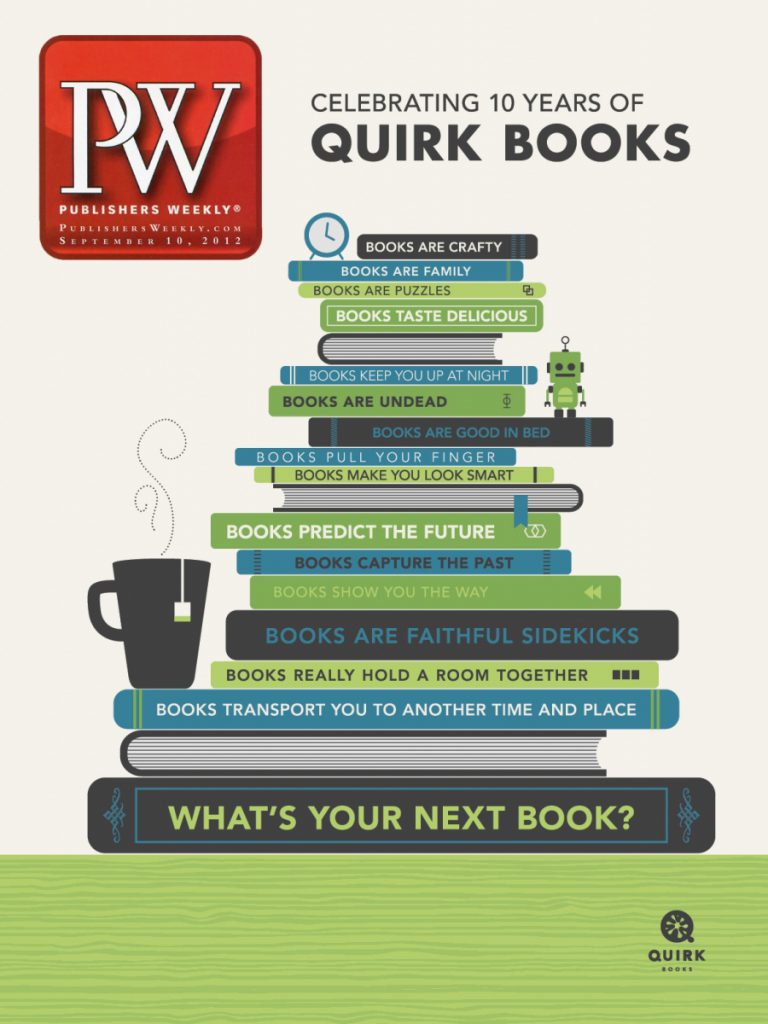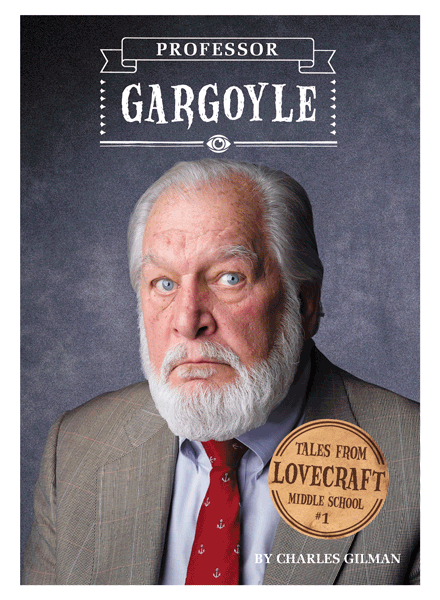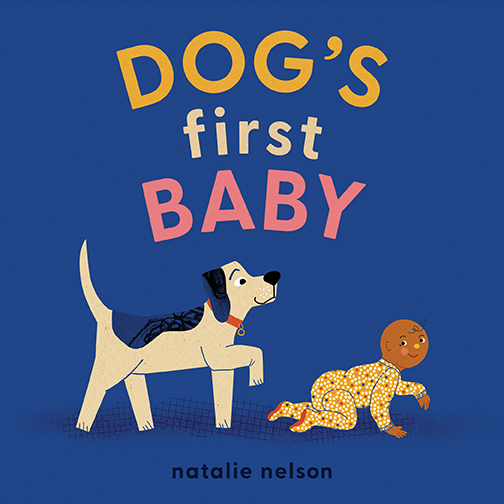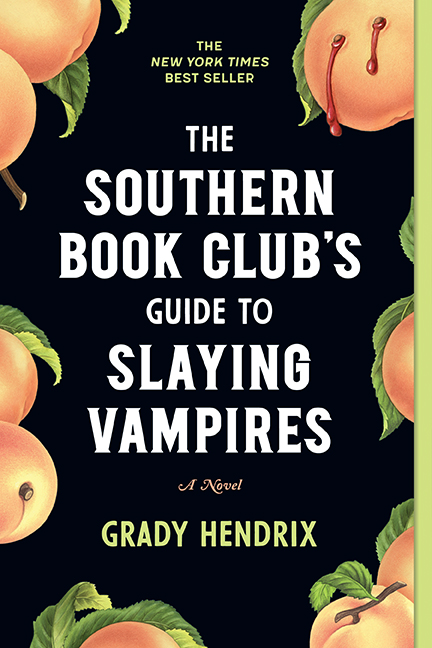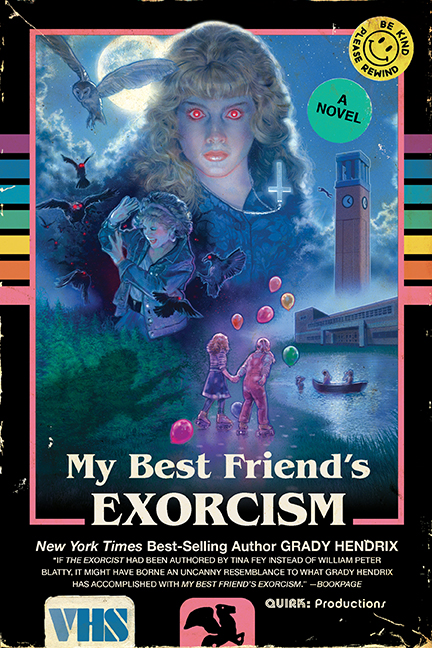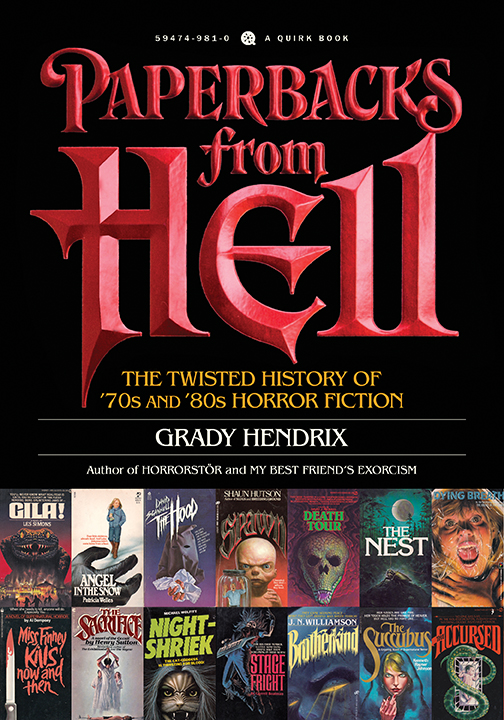Our Blog
Thomas Craughwell Appearing @ the Whittemore Library on September 26th
Image via Historic Buildings of CT
On Wednesday, September 26th the Whittemore Library in Naugatuck, Connecticut is having a book talk and signing by Quirk author Thomas Craughwell. He’ll be there chatting about his latest book, Thomas Jefferson’s Creme Brulee.
This isn’t the first time Tom stopped by the library. Last time he talked about his book Stealing Lincoln’s Body. If you’re in the area, stop by! You can learn more about the library over on its official website and/or Facebook page.
Posted by Eric Smith
Publishers Weekly: Celebrating Ten Years of Strikingly Unconventional Books
If you came to Book Expo America this year, you might have been one of the lucky few who snagged our fancy "What's Your Next Book?" ten year anniversary poster. Well, that classy poster has found new life on the cover of this week's Publishers Weekly, as we continue our year-long, ten year anniversary celebration. And we are psyched to see our logo on the cover.
The fun doesn't stop there though! Along with the fun cover, inside this week's issue you'll also spot three pages of Quirky goodness, designed by our fabulous Andie Reid. We've got them pasted below.
Thanks for a great ten years, everyone. And make sure you check out our History of Quirk Books Timeline and our Quirk Books Infographic.
Posted by Eric Smith
Why You Should Listen to Classical Music
Photo by Steve Snodgrass
Did you know that September is Classical Music Month? Me either! And while I’m sure there are plenty of reasons to listen to classical music (Mozart effect, anyone?) our favorite broet, Brian McGackin, has the one and only reason you should bother.
John Williams.
So in honor of Classical Music Month, we’ve got Brian’s poem, Why You Should Listen to Classical Music, excerpted below. Enjoy!
Posted by Eric Smith
Get a Free Copy of Professor Gargoyle: Tales From Lovecraft Middle School for Your Classroom Library
Our first middle grade title (and the first in our new series), Professor Gargoyle: Tales From Lovecraft Middle School, hits shelves everywhere later this month. We're excited about the series and we're eager to get it into the hands of young readers everywhere.
So we're giving away some copies.
Are you a school teacher working with kids in Grades 4 through 7? Well, we want to send you a FREE copy (or two!) of Professor Gargoyle: Tales From Lovecraft Middle School for your classroom library! Just email [email protected] with a little bit about yourself and your school, and we'll talk!
This is while supplies last, so act quickly! US and Canada only, please. We can't wait to hear from you!
Posted by Eric Smith
We’re Kind of a Big Deal: Quirk Titles in Amazon’s Summer Big Deal Promotion
Thanks to Amazon’s awesome Summer Big Deal promotion, you can get a number of Quirk titles on the cheap for your Kindle, from $2.99 to $3.99.
The selection ranges from our Quirk Classics (including the entire Pride & Prejudice & Zombies trilogy) to some of our Secret Lives titles. You can even grab The Sherlock Holmes Handbook, which was Ransom Riggs’ first book with us before his bestselling YA novel Miss Peregrine’s Home for Peculiar Children.
I’ve got the full list (and links!) below. The promotion ends on the 23rd, so get them while you can.
Posted by Eric Smith
A Conversation with Don Steinberg, Author of The Kickstarter Handbook
Today, we’ve got a quick Q&A with Don Steinberg, author of The Kickstarter Handbook. Read on for some useful tips, and learn how he picked the campaigns he highlighted in the book.
Q: Out of thousands of successful and not-so-successful projects on Kickstarter, how did you pick the campaigns featured in The Kickstarter Handbook?
A: The purpose of the book is to give everybody who wants to launch a Kickstarter campaign some useful strategies, ideas that will help a project succeed, no matter how big or small or what type of project. So I sought out a wide variety of examples: projects with fundraising goals of $100,000 or more, projects with targets under $5,000, and many in between. Kickstarter has thirteen creative categories, from the new product inventions to performing arts like music, dance and film, and I wanted to get useful examples and strategies from as wide a range as possible. I also looked for Kickstarter campaigns that were extreme in some way to show how they did it—like a few people who raised an insane amount of money in their final hours. And there was stuff that I just thought was cool, like the guys who raised money to erect a statue of RoboCop in Detroit. Who wouldn’t want to read about that?
Q: What’s the biggest mistake one can make when attempting to fund a project through Kickstarter?
A: The biggest mistake seems to be the “set it and forget it” mentality—thinking that simply posting a project on Kickstarter is all you need to do to bring in all kinds of money. Kickstarter isn’t a magic pot of gold. It’s a great place to explain a project you’re passionate about and collect pledges from people who want to support it, but it’s still fund-raising. You still have to work hard to get attention and money. The dirty secret of crowdfunding is that, to a large extent, you have to bring or create your own crowd.
Q: You point out that Kickstarter might not be the right platform for everyone. How can someone determine whether or not they should use Kickstarter?
A: You must be prepared to treat your fund-raising effort like a campaign, almost like a political campaign, grinding it out for 30 days or however long you’ve set it up for. You have to be willing to ask friends and acquaintances for money. Kickstarter removes some of that stigma—it even can make fund-raising cool!—but it’s still not for everybody. You also have to be totally committed to your idea and really at the point where you just need X amount of dollars to finish it or take it to the next level.
Q: Have you tried to run a Kickstarter campaign? If so, what was your experience like? Have you backed someone else’s campaign?
A: I did set up a dummy campaign to experience Kickstarter’s set-up process, to research the book, but I haven’t identified my real passion project yet. The projects I’ve backed have been things I’ve wanted personally as a consumer of creative work. In one campaign, a chef from Idaho offered to send out fresh spice packets with recipes regularly, like a magazine subscription. What a cool idea. I also backed a documentary film about a radio station that I grew up listening to.
Q: You emphasize in The Kickstarter Handbook how unlikely a formula the Kickstarter model is—it seems incredible that so many people would give money to strangers to support a project that is still in the planning stage. Why do you think the crowdfunding phenomenon has caught on?
A: The Web has made so many new ways of connecting possible. I attribute a lot of it to eBay. Instead of Amazon or Walmart selling everything to everybody, it’s everybody selling everything to everybody. These days if you want to find an audience for your writing, music, videos, you don’t need to go through traditional distributors anymore. You also can make a microloan to a farmer in Guatemala, more or less directly, at Kiva.org, without wondering how some big global charity is handling your money. People like the power of making things happen. Kickstarter has the same sensibility—people are more or less voting on what products and movies and music should be brought to life, not relying on some big corporation to give its thumbs-up.
Q: Some campaigns get very creative with their rewards, offering not just T-shirts or tote bags but personal experiences. Have any rewards stuck out to you as ingenious, exciting, or a little bit insane?
A: The new products offered as rewards are definitely “not sold in stores” kind of stuff, and it can be really exciting to get in on the ground floor. Like a phone-controlled mini-robot, or make-at-home designer lampshades, or a clock that takes a whole year to go around and uses colors instead of numbers. I love how creative other kinds of projects have been with rewards—you start to appreciate how many things in life can be rewarding. The chance to be listed as a producer in the credits at the end of a movie—how cool is that? How could you ever get that before for 50 bucks?
Q: Musician Amanda Palmer recently used Kickstarter to raise over one million dollars to produce her own album and an accompanying art book, as well as to launch a tour. Do you anticipate funding like this, where more well-known artists are funded directly by their fans, becoming more common?
A: That’s happening a lot more, and not just on Kickstarter. Artists now have a choice. Labels and publishers and studios can help a project succeed, but if the deal isn’t right an artist has a chance to make it work by taking a creation directly to his or her audience.
Q: After interviewing the many different people featured in The Kickstarter Handbook who used Kickstarter and learning about their varied experiences with the site, what’s the single best piece of advice you can offer an aspiring creator?
A: Is money what’s preventing you from accomplishing your creative goal? Think about what’s really standing in your way. Is it money, or something else? If it’s something else, deal with that first! If you’re ready to roll and it really is just dollars holding you back, with Kickstarter that doesn’t need to be an obstacle—or an excuse—anymore.
Posted by Eric Smith
